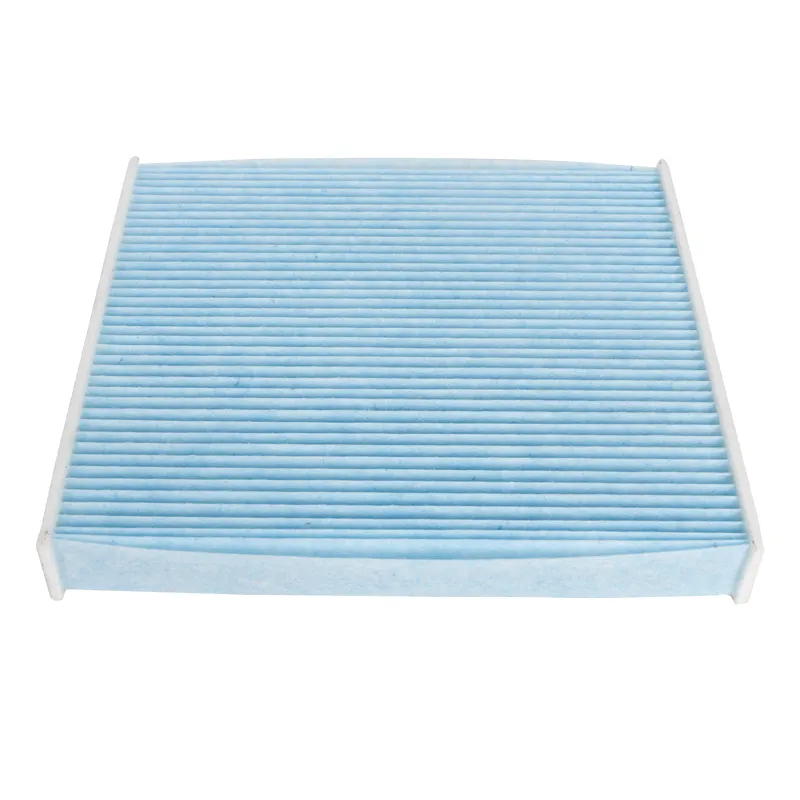Aug . 01, 2024 02:56 Back to list
Essential Guide to Choosing the Right Oil Filter for Your VW Jetta Model
Understanding the Importance of Oil Filters in VW Jetta
The Volkswagen Jetta is a beloved compact car known for its reliability, performance, and efficiency. One of the key components that contribute to the longevity of any vehicle, including the VW Jetta, is its oil filter. In this article, we will delve into the importance of oil filters, specifically for the VW Jetta, how they work, and when to replace them.
What is an Oil Filter?
An oil filter is a critical component of a vehicle's engine lubrication system. Its primary function is to remove contaminants from the engine oil that can accumulate from normal engine operation. These contaminants can include dirt, metal particles, carbon buildup, and sludge. By filtering out these impurities, the oil filter helps to ensure that the engine oil remains clean and effective, promoting optimal engine performance and longevity.
How Does the Oil Filter Work?
The oil filter operates as part of a closed-loop system within the engine. As the engine runs, oil circulates through the engine to lubricate moving parts, maintaining smooth operation and reducing wear. This oil also picks up impurities along the way. As the oil flows back to the oil pan, it passes through the oil filter.
Inside the oil filter, the oil is forced through a filtering medium. This medium traps contaminants while allowing the clean oil to flow back into the engine. Most VW Jetta models come equipped with either spin-on or cartridge-style oil filters. Spin-on filters can be easily removed and replaced, making them a popular choice for DIY maintenance. In contrast, cartridge filters generally require a bit more work to access but offer a more compact design.
Why is the Oil Filter Important for the VW Jetta?
Keeping a clean oil filter is vital for the overall health of your VW Jetta's engine. Here are a few reasons why
vw jetta oil filter

1. Engine Protection A clean oil filter ensures that the engine oil remains free of harmful contaminants that could lead to engine wear. Without proper filtration, dirt and debris could circulate and cause damage to engine components.
2. Enhanced Performance Clean oil contributes to better performance. When the oil is able to flow freely without obstruction from contaminants, it can effectively lubricate the engine parts while minimizing friction. This leads to improved fuel efficiency and power output.
3. Extended Engine Life Regularly replacing the oil filter, in conjunction with oil changes, can significantly extend the life of the engine. Clean oil not only keeps the engine running smoothly but also prevents the buildup of harmful sludge that can cause overheating or even catastrophic engine failure.
When to Replace the Oil Filter
For the VW Jetta, it is generally recommended to replace the oil filter every time you change the oil. This is typically every 5,000 to 10,000 miles, depending on driving conditions and the type of oil used. It's also essential to check the owner’s manual for manufacturer recommendations regarding oil change intervals and filter replacement.
If you notice any of the following signs, it may indicate that it’s time to replace the oil filter
- Reduced engine performance - Increased engine noise - Oil pressure warning light activation - Dirty or discolored oil
Conclusion
In conclusion, the oil filter is an essential component of the VW Jetta that should not be overlooked. Regular maintenance, including oil and filter changes, is key to ensuring that your Jetta runs efficiently and lasts for many years. Investing time and resources into proper upkeep will reward you with a car that performs at its best, offering you the reliability and enjoyment that comes with owning a Volkswagen. Whether you're a seasoned mechanic or a novice car owner, always prioritize the health of your engine by keeping your oil filter in check.
-
Toyota Corolla Hatchback Cabin Air Filter – High Efficiency & Easy Installation
NewsJul.08,2025
-
Premium Canister Fuel Filter Supplier High Quality Oil Filtration Solutions
NewsJul.08,2025
-
Premium Car Filter Oil Solutions Leading Car Oil Filter Exporter Hyundai Car Oil Filter Exporters
NewsJul.08,2025
-
Buy 17x21x1 Air Filter – Improve Air Quality & HVAC Efficiency Affordable Air & Cabin Air Filter Cost
NewsJul.07,2025
-
High-Performance Filter Element Fuel – Durable, Efficient & Cost-Effective Solutions
NewsJul.07,2025
-
High-Quality Engine Filter and Cabin Filter for Superior Airflow Affordable Cabin and Engine Air Filter Cost
NewsJul.07,2025


